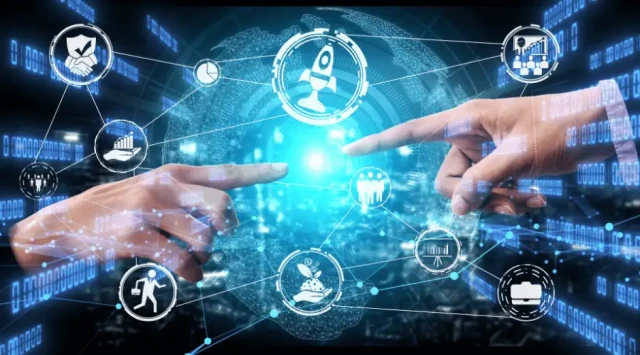The Human Resources (HR) field is constantly changing, particularly regarding mergers and acquisitions (M&A) in the HR tech industry. These business transactions are not solely focused on financial aspects; they drive innovation and enhance HR technology, thereby transforming how companies support their employees. With significant advancements in HR tech, HR professionals must grasp the significance of these changes. If you are intrigued by how technology is shaping the future of work, it is vital to stay updated on these developments.
The Catalysts for Innovation Through M&A in the HR Software Industry
Mergers and acquisitions (M&A) are strategic moves companies make to improve their abilities and adapt to change. When companies in the HR tech industry come together, it pushes them ahead and leads to new and improved customer solutions.

Strategic Acquisitions: The Pathway to Enhanced Product Features
- Integration of Complementary Technologies: Mergers and acquisitions merge different technologies to enhance HR software solutions. For example, when a payroll processing company partners with a company focusing on employee engagement tools, it can develop a unified platform that caters to various HR department functions.
- Pooling of Expertise and Resources: When HR tech companies merge, they pool resources and expertise to accelerate innovation. Strategic acquisitions can combine AI capabilities with data reporting and analytics tools, boosting predictive analytics features in HR software.
- Accelerated Development Timelines: Integrated teams working together can save the time it takes to create new features or products. Mergers and acquisitions bring different talents together, making projects more efficient and innovative for HR software companies.
Expanding Product Offerings Through M&A

Many companies are using an effective strategy of merging with or acquiring other companies to expand their product offerings. This helps them provide a wider range of HR solutions that are better suited to the complex needs of modern work environments. By doing this, companies improve their competitive advantage and give HR professionals a more streamlined and effective platform to manage their HR tasks.
Benefits of Expanding HR Product Offerings Through M&A:
- Comprehensive Solutions Under One Roof: Mergers and acquisitions (M&A) enable HR technology companies to combine different products and services into one comprehensive management solution. This integrated approach helps HR professionals handle various tasks, such as hiring, training, evaluating performance, and managing payroll, more efficiently.
- Enhanced Integration and Data Analysis Capabilities: Companies can achieve better integration across different HR processes with a broader array of tools and features on a single platform. This seamless integration allows for efficient data flow and analysis, empowering HR professionals to make informed, data-driven decisions.
- Customisation and Flexibility: HR technology companies can improve their product offerings by collaborating with other companies. This collaboration allows them to create customised solutions for various businesses, including small startups and large corporations.
- Cost and Time Efficiency: Merging different HR functions into one platform decreases the necessity for multiple software subscriptions, which benefits administration and overall business finances. Organised processes and effective data and human resource management save considerable time for HR professionals.
- Competitive Advantage: HR tech companies choose to create alliances with other companies. This strategic collaboration enables them to enhance their product offerings and integrate the most up-to-date innovations and trends into their solutions. By doing so, they ensure their clients can access advanced staff management tools and features.
How to Enhance Service Delivery and User Experience

Mergers and acquisitions (M&A) play a significant role in fostering innovation, pushing forward the advancement of HR service delivery, and enhancing the experiences of HR users. This transformative phase in the HR tech field reshapes the market and profoundly influences how businesses manage their employees. Let's delve into how merging knowledge, resources, and technology after M&A can create more user-friendly and efficient HR software solutions, ultimately prioritising a customer-centric approach.
Benefits of Mergers and Acquisitions in HR Tech:
- Integrated Expertise and Innovation: Mergers and acquisitions (M&As) allow for the collaboration of various companies' strengths and areas of expertise. This combination of knowledge and skills fosters creativity and leads to the creation of comprehensive HR software solutions. By pooling together their resources, these companies can develop features that better cater to the changing demands of businesses. These advancements include smoother workflows and improved data analytics capabilities.
- Expanded Resources and Capabilities: Mergers and acquisitions (M&As) provide newly created organisations with more excellent resources and abilities. This can significantly enhance the adaptability of HR technology solutions, enabling them to cater to a wider variety of business sizes and types. Combining technological assets allows more robust and secure platforms to be developed.
- Enhanced User Experience Through Customisation: Combining various technologies and methods after a merger allows for more adaptable and customisable HR software. This flexibility ensures that companies can modify the software to suit their operational requirements, improving efficiency and user happiness. These customisation options can include personalised dashboards and adjustable reports, making it more straightforward for HR professionals to access their software or mobile app, and analyse data pertinent to their goals.
- Customer Feedback as a Cornerstone for Improvement: Customer feedback is precious in shaping the product development path. Combining customer feedback gives us a more comprehensive range of perspectives and experiences. Our focus on the customer ensures that any enhancements to our products after a merger align with what users want and need. As a result, our HR software solutions become more intuitive, efficient, and satisfying.
Overcoming Challenges and Mitigating Risks in HR Tech M&A

Mergers and acquisitions in the HR tech sector bring about specific challenges and risks, such as integrating cultures, ensuring system compatibility, and upholding product quality. In the sections below, we examine the common obstacles and propose strategies for effectively navigating these complexities.
Cultural Integration:
- Challenge: Merging distinct company cultures can lead to resistance, reducing employee morale and productivity.
- Strategy: Foster open communication and involve employees in the integration process. Develop a unified culture that incorporates the most positive aspects of both organisations, emphasising shared values and goals.
System Compatibility Issues:
- Challenge: Differences in IT systems and technologies can disrupt operations, leading to inefficiencies.
- Strategy: Conduct thorough due diligence to identify and address compatibility issues early. Consider employing integration platforms that facilitate seamless data exchange and system coexistence.
Maintaining Product Quality:
- Challenge: Transition periods often shift focus away from product development and customer service, risking product quality.
- Strategy: Prioritise product and service continuity by establishing dedicated teams that maintain core operations and customer support throughout the transition.
Strategic Integration Planning:
- Strategy: Develop a detailed integration plan that outlines key objectives, timelines, and responsibilities. This plan should include stakeholder communication strategies to ensure transparency and engagement, helping to mitigate resistance and foster a sense of unity.
Our exploration shows that the future of HR technology is filled with exciting possibilities, mainly due to the impact of mergers and acquisitions on driving strategic HR innovation. These industry consolidations are catalysts for groundbreaking developments in human resources technology. By integrating diverse technologies and expertise, M&A activities set the stage for enhanced services and innovative solutions that redefine workforce management. Let's embrace this change with optimism, looking forward to the myriad benefits these strategic moves will undoubtedly bring to the HR tech landscape. The future is full of potential for more innovative, efficient HR practices.



